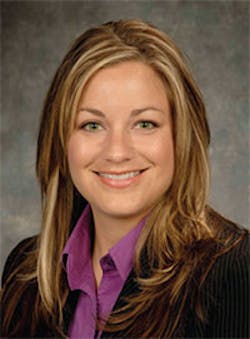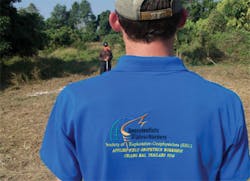Industry aids Geoscientists Without Borders in global humanitarian efforts
In early 2008, the Society of Exploration Geophysicists (SEG), a not-for-profit organization that promotes the science of geophysics and the education of applied geophysicists, established its Geoscientists Without Borders (GWB) program aimed at providing assistance to communities through projects involving humanitarian and environmental applications of geophysics.
The program was initiated with a $1 million founding grant from Schlumberger. Since then, commitments have been submitted by Global Geophysical Services and Australia's Santos.
"Geoscientists Without Borders will strengthen university programs, introduce students to the practical and humanitarian benefits of geophysics and geoscience, and make a difference to the quality of life in many of the world's most disadvantaged communities," said Gary Servos, SEG Foundation Board vice chair upon the program's founding.
Through this initiative, the SEG Foundation awards grants to pro-jects of merit, including locating fresh water supplies, pollution remediation, natural hazard mitigation, sustainable resource development and related education. Humanitarian applications of geoscience technology are emphasized. Through the projects, the program aims to promote interaction of academic and industrial concerns in a broad and diverse manner, particularly by involving students in the geosciences.
"When we looked at the technologies we have developed in the oil and gas sector and the potential benefits to humanitarian efforts, we were interested in enabling these applications through interaction with the academic community, students and the SEG Foundation," said Dalton Boutte, executive vice president of Schlumberger and president of WesternGeco.
In February of this year, another oil and gas industry service provider, Global Geophysical Services, got in on the effort. The Houston-based seismic data solutions provider committed $250,000 to the program, to be delivered in five annual installments.
"Our business takes us to the less developed areas of the world, where we see firsthand the need. As geophysicists, we understand the benefits that geoscience can bring to, among many examples, improving access to potable water and mitigating the effects of natural hazards," stated Richard Degner, CEO of Global Geophysical Services.
The success of the GWB program has been tremendous.
Since the program took off in 2008, professors and students from various US universities, united with international students, scientists, and professors have teamed up to conduct fieldwork in various parts of the world.
In India, Clemson University has teamed up with Foundation for Economic Security (nongovernmental organization in India), Indian Institute of Technology-Bombay, and communities in Salri, India to address the rural water crisis.
Water is also the focus of the partnership between the Colorado School of Mines and the people of Chasniqua, Honduras. Using geophysical tools, the team will aid in site location for water wells, culminating in the development of a plan for water treatment, storage, and distribution.
In Indonesia, GeoHazards International and its alliance partners are assessing the need for and feasibility of vertical evacuation structures as a key component of tsunami preparedness in coastal communities.
In Australia, energy company Santos is working with the University of Adelaide to locate sustainable groundwater resources for Aboriginal communities in the remote outback.
The most recently approved pro-ject was tasked to The University of Texas at Austin, in partnership with the University of West Indies and Jamaica's Office of Disaster Preparedness and Emergency Management. The team is working to assess the location of active faults and the probability of future, large tsunami-producing earthquakes occurring near Kingston, Jamaica.
"The number of worthy applications has been increasing with each round of submitted proposals," said SEG's Servos. The need for geologic expertise in the world's most disadvantaged communities is great, as is the need for donations. Projects in Central Romania and South Africa are currently under contract negotiations, and the applications continue to roll in.
More Oil & Gas Financial Journal Current Issue Articles
More Oil & Gas Financial Journal Archives Issue Articles
View Oil and Gas Articles on PennEnergy.com

